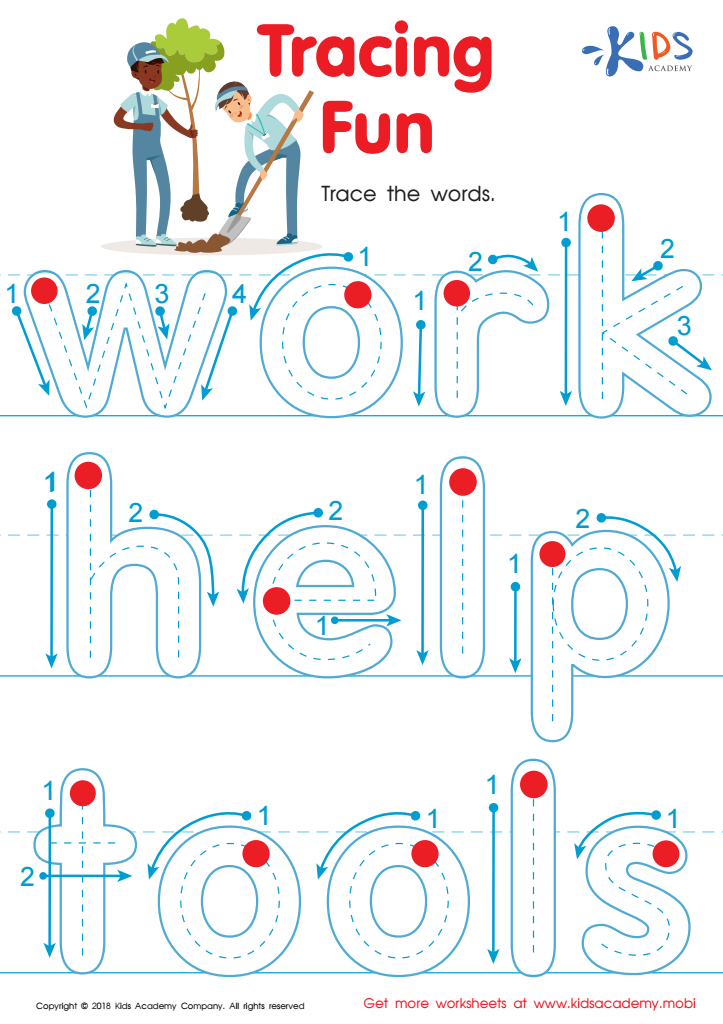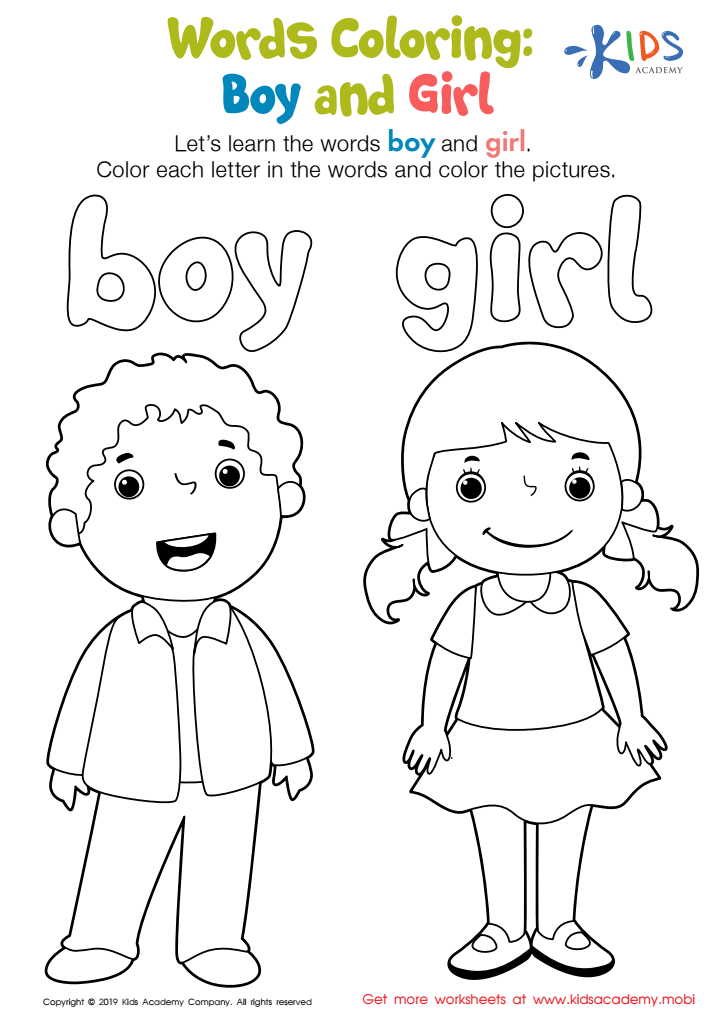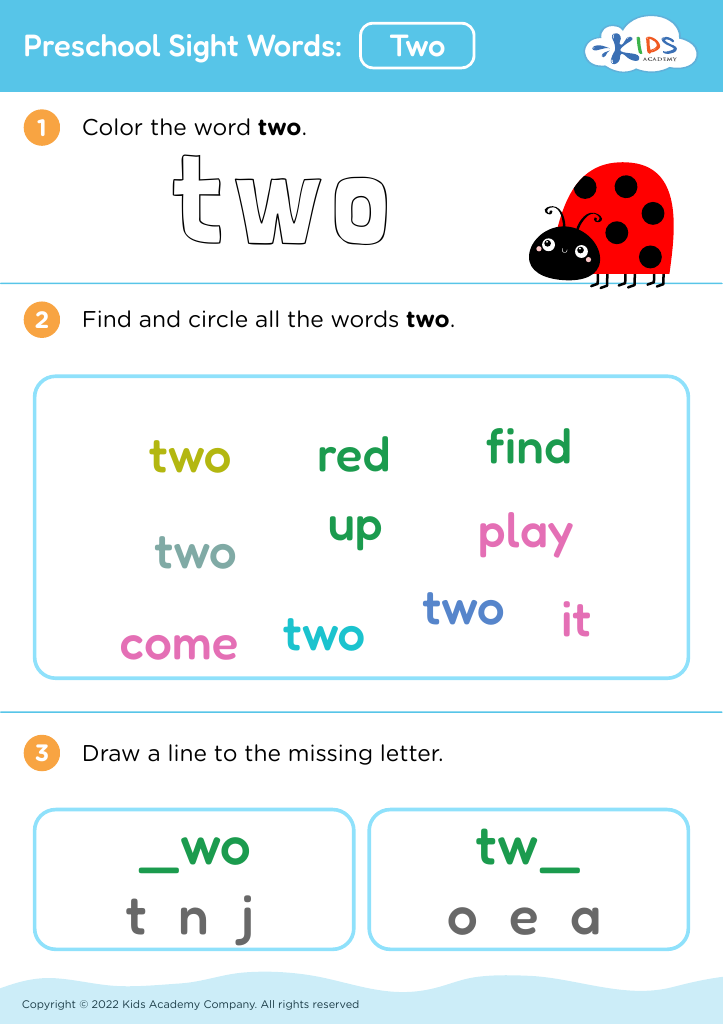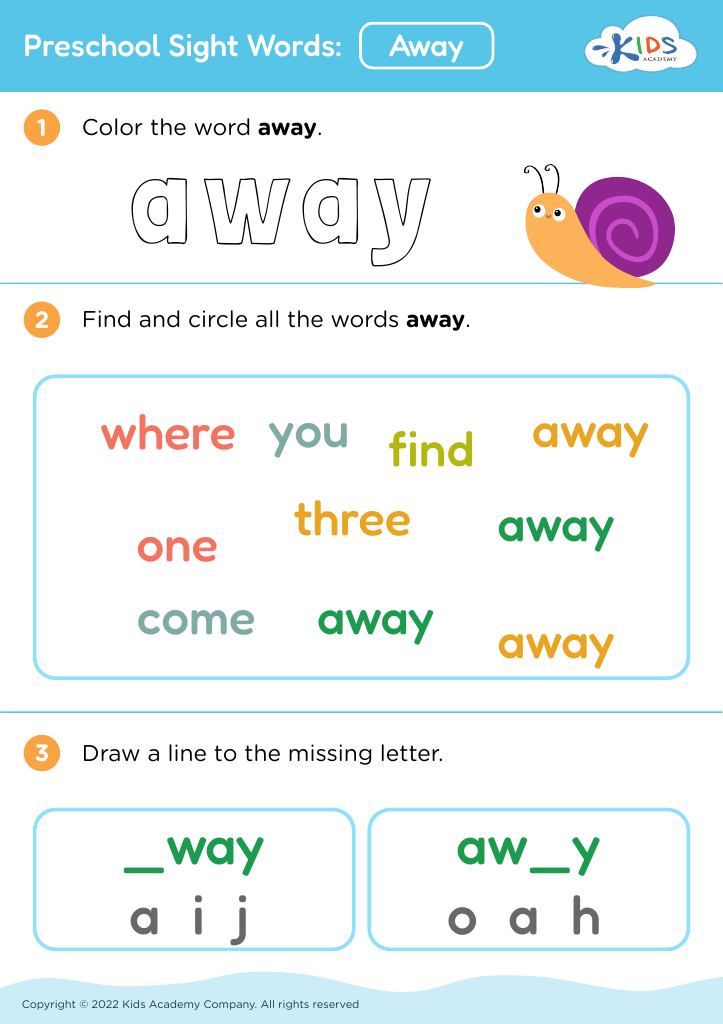Hand-eye Coordination Building Vocabulary Worksheets for Ages 3-7
4 filtered results
-
From - To
Enhance your child's learning experience with our Hand-eye Coordination Building Vocabulary Worksheets for ages 3-7. These engaging, printable activities are designed to foster essential skills while promoting vocabulary development. Through fun exercises that combine physical movement and cognitive challenges, children will improve their hand-eye coordination while expanding their language abilities. Our worksheets feature colorful illustrations and interactive tasks, making learning enjoyable and effective. Perfect for parents and educators alike, these resources will help young learners develop confidence as they master new words. Download now to support your child's growth and set the foundation for successful learning!


Tracing Fun Worksheet


Boy and Girl Words Coloring Worksheet
Hand-eye coordination is a crucial skill that develops during early childhood and is foundational for various everyday activities, such as writing, playing sports, and participating in crafts. For children ages 3-7, enhancing this coordination paves the way for greater confidence and success in their physical and cognitive development.
Teachers and parents should be invested in building this skill because it impacts a child's ability to perform tasks that require timing and precision, ultimately influencing their academic performance. Activities designed to improve hand-eye coordination, such as puzzles, ball games, and arts and crafts, not only promote physical skills but also stimulate brain development and enhance vocabulary.
Through engaging in discussions about the tasks and activities, children learn new words and concepts. For example, using terms related to colors, shapes, and actions while they play fosters their language skills and enriches their vocabulary. This dual benefit means that as children navigate physical challenges, they simultaneously expand their understanding of language.
By prioritizing hand-eye coordination and vocabulary building, parents and teachers create a holistic learning environment that prepares children for future success in school and life. Encouraging exploration and practice in these areas equips children not only with essential skills but also with a love for learning.

 Assign to My Students
Assign to My Students


















.jpg)













